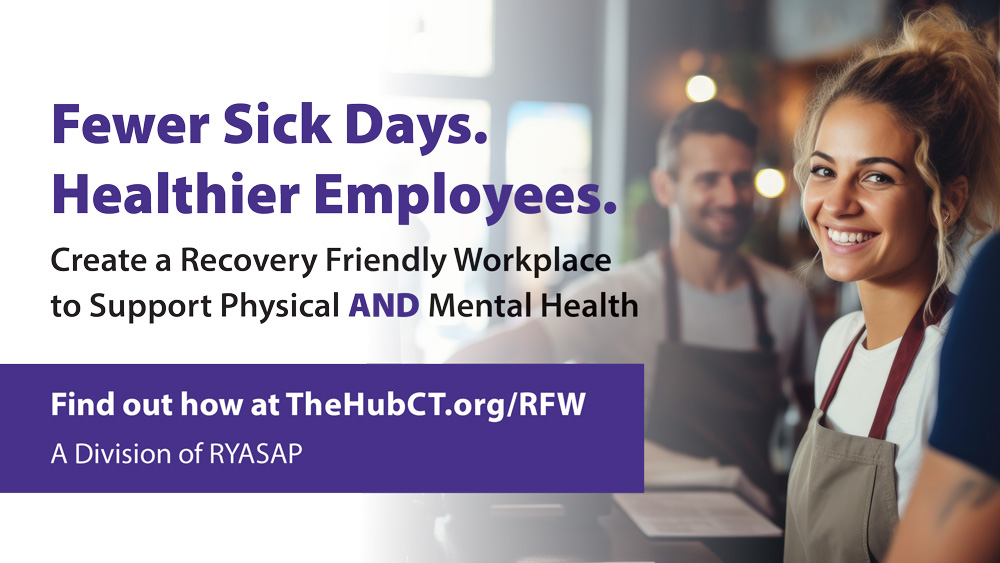For those in recovery from mental health conditions and substance use disorders, the workplace can be a challenging environment. It can take tremendous effort to stay well and due to stigma, many people feel like they need to hide their struggles at work. However, there are millions of people in recovery who contribute their talents to businesses every day. That’s why the recovery-friendly workplace initiative was developed.
What is a Recovery Friendly Workplace?
Recovery-friendly workplaces actively support employees’ mental health in addition to physical health. The goal is to create a workplace culture that promotes health, well-being and understanding for individuals dealing with mental health conditions and substance use disorders. Certified recovery-friendly workplaces implement policies, programs and resources to provide support, reduce stigma and encourage employees to seek help when needed without the fear of losing their job.
Benefits of Recovery Friendly Workplaces
1. Employee Well-being:
Recovery-friendly environments promote mental well-being, contributing to reduced stress and improved mental health for employees. Supportive workplaces can also help lower rates of substance misuse and relapse among employees.
2. Productivity and Performance:
By addressing mental health and substance use issues, organizations often see a decrease in absenteeism. Higher job satisfaction leads to increased productivity and commitment to their roles.
3. Employee Retention
When employees feel supported during their recovery, they are more likely to feel a sense of loyalty to the organization, leading to higher retention rates.
4. Cost Savings
By proactively addressing mental health and substance use issues, companies may see a reduction in health-care costs as well as recruiting costs if there is less turnover.
5. Legal and Regulatory Compliance
Recovery-friendly workplaces can help organizations comply with anti-discrimination laws related to individuals in recovery.
6. Employee Engagement
A supportive environment fosters positive relationships among colleagues. Employees are more likely to communicate openly about their challenges, facilitating a culture of understanding and empathy.
7. Risk Reduction
Addressing substance use and mental health issues proactively can reduce the risk of workplace accidents and incidents related to impaired judgment or performance.
8. Legal Protections
Some jurisdictions may have legal requirements or recommendations regarding the treatment of employees with substance use disorders. A recovery-friendly workplace can help you comply with these regulations.
For more information about the Recovery-Friendly workplace initiative in Connecticut and to learn how to get your workplace certified, visit www.thehubct.org/rfw.























